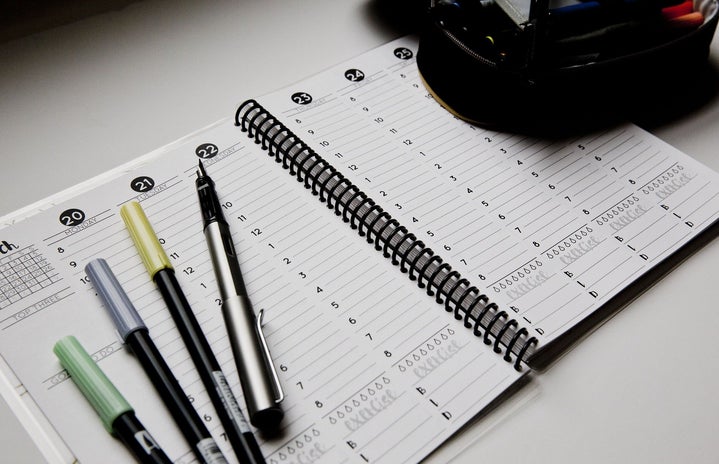When I was young, the medicine cabinet at my parent’s house consisted of the typical bottles you’d expect to find– Ibuprofen, Advil, Tums, and NyQuil. Until it became a sea of opioids that were intended to treat the acute pain my father was experiencing following two surgeries. Until it was not acute anymore – the pain became chronic and the list of medications longer. And soon, the compassion I felt towards him because of his pain, turned into anger as I realized at 12 years old, that my father was no longer the same person he’d been before his accident. I was angry that he couldn’t do the same things with the same amount of energy – he just didn’t have it in him. What I didn’t know was that he was losing weight because he wasn’t eating – he had lost his appetite. I did not know that the sudden mood changes that left me confused and scared were a side effect in many of the medications he was taking.
After over 6 years of being on opioids, it’s safe to say that my father is completely dependent on them – relying on them in order to function. In order to be able to breathe. If not pain-free, then at least a little bit more comfortable than without them.
The horrific part is that this isn’t a singular case – there are so many others just like him in the state of Utah. According to the Utah Department of Health, 6 people die every week in the state due to opioid overdose. With the severity of the issue, it’s clear to see that opioid management and decreasing its use is critical. Candace, living with a hole in her heart, fibromyalgia, depression, and anxiety, states “If medical marijuana helped even one person live pain-free and be free of their opiate addiction, helping them become a healthy, productive member of society – isn’t it worth it?”
Proposition 2 is on the Utah ballot this year in an effort to increase access to medical marijuana. Designed to legalize medical marijuana for patients with certain conditions, it allows for individuals to obtain a medical marijuana card – just like a prescription, from a physician.
Harvard Health Publishing describes the benefits that cannabis provides for sufferers of chronic pain. “…it is clearly safer than opiates…and it can take the place of NSAIDs such as Advil or Aleve, if people can’t take them due to problems with their kidneys or ulcers…its use quite successfully for fibromyalgia, endometriosis, interstitial cystitis, and most other conditions where the final common pathway is chronic pain” (Grinspoon).
Corbin, a 20 year old with Ankylosing Spondylitis, Reiter’s Syndrome, and Scoliosis mentioned the relief that marijuana has brought him. “Cannabis helps me get through the day by eliminating that pain and discomfort. It’s also the only reason I’m able to sleep most nights. At the beginning of my decline in health, I was prescribed numerous opioids to combat the pain. I felt like a mindless zombie that couldn’t eat or function like a normal person, not to mention I was risking addiction as it runs in my family…I live in fear that I could go to prison for trying to make my life more comfortable and normal.”
Legalizing medical marijuana in Utah has been and will continue to be a battle. This is especially true given the opposition from The Church of Jesus Christ of Latter-Day Saints, which fears that making marijuana legal would put children and young adults at a higher risk for marijuana use.
Prescription drugs often tend to have negative side effects on personality and mood. THA, a patient using medical cannabis for anxiety and depression, talked about the relief that cannabis had brought her. “It’s hard to put into words, but I feel like I can breathe now. I’m not so defensive anymore. I feel like I can actually talk things out with people. Almost everyone has told me how different I am now, and that feels good.”
“Cannabis got me off opiates cold turkey and it’s the only non-addictive thing that has worked for my pain. I’ve been a hundred times higher on prescription pills than I’ve ever been cannabis.” Brandi, a sufferer of chronic pain, said when asked what she wanted those opposing medical marijuana to know.
I interviewed tens of others. They spoke of suffering – PTSD, chronic pain from car accidents, epilepsy, addiction and the horror that prescription drugs had brought upon their families. This November, it’s important to remember their stories when voting – their pain and the relief that medical marijuana can bring upon them. Religious views aside – how can we stand by and watch people suffer, knowing that we have the full capability to make their lives a little bit easier, their pain a little more bearable?
www.health.harvard.edu/blog/medical-marijuana-2018011513085.
https://giphy.com/gifs/stephen-colbert-the-report-pot-Joii3DjN4RGne
https://media.giphy.com/media/l2Jed8RiQUs2a8FSE/giphy.gif
https://giphy.com/gifs/election2016-voting-jesse-williams-save-the-day-2…


